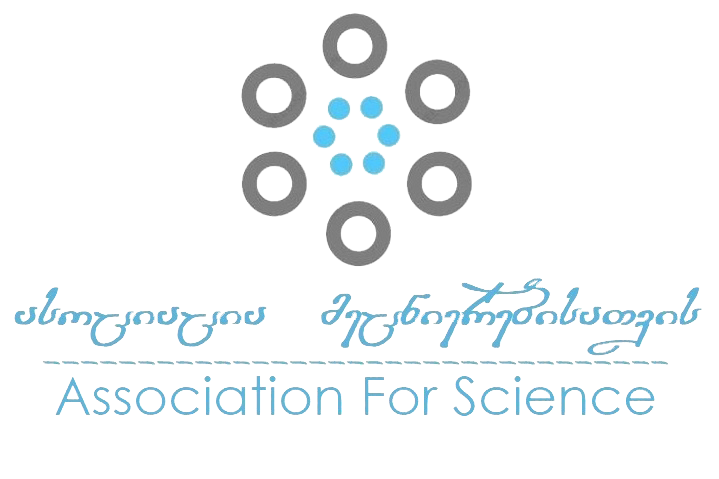The Importance and Influence of labor Motivation on the Institutionalization of Formal and Informal labor practices
(Case of Georgia and Germany)
DOI:
https://doi.org/10.52340/isj.2024.27.04Keywords:
labour practices, Informal labour, Formal labour, Work MotivationAbstract
Market process-oriented reforms in Georgia at the beginning of the 90s intensified the acuteness of the problem of adapting the population to drastic changes in the sphere of labour. As a result of this new types of social-economic behaviour not practised before emerged in the social-economic spheres. For the analyses of adaptation models in the sphere of labour developed in Georgia, it is important to compare them to models existing in countries with a well-formed market system, such as Germany. Unlike Germany, labour relations in Georgia become an object of a clash of private interests and employees start to unite under clan principles. What is being developed is not a jural state but a conglomerate of small communities, which put group interests and norms and the leader’s authority in the place of public interests. In Georgian collectives, unlike German ones, labour actions of individuals are directed by attractive motivation (or an emotional feeling of complicity with one another), hence in Georgia informal procedures hinder effective labour activity.
Hence, this article attempts to analyse the structure of labour motives of subjects of labour relations as factors affecting formal and informal practices of labour behaviour in Georgia and Germany. It is important to understand what kind of labour motives promote or prevent the spreading of informal labour practice; which social conditions influence the formation of such motives in German and Georgian labourers; how labour motivation influences forms of integration in the society; which forms of labour activity are encouraged by the society and why; which models of labour activity are formed in Georgia and Germany based on different labour motives. Problems connected with labour motivation are of current importance in Georgia. The sociological research was based mainly on qualitative research methods. Several research methods have been used: analysis of theories, interviews, empirical sociological research, etc.
Downloads
References
.Abrutyn, S., and O. Lizardo. 2023. “A Motivational Theory of Roles, Rewards, and Institutions.” Journal for the Theory of Social Behaviour 53(2): 200–220.
.Abrutyn, S., and J. Zhang. 2024. “Morality, Affect, and Reputation in the Making of a Motivated Social Self.” Sociological Theory 42(1): 73–96. (Abrutyn, S., and J. Zhang, 2024)
.Alexeev, M. and William P. 2003. "A note on measuring the inofficial economy in the Former Soviet Republics", Economic of Transitions 11/1, pp.1-23
.Baumann E. 2010. "Post-Soviet Georgia: The Rocky Path towards Modem Social Protection", Social Policy and the Global Crisis, ESPANET Conference, Budapest, September 2-4, recherche-iedes.univ-parisl.fr/membres/ membres-permanents/Baumann-Eveline
.Benzecry, C., and R. Collins. 2014. “The High of Cultural Experience: Toward a Microsociology of Cultural Consumption.” Sociological Theory 32(4): 307–326.
.Boeri, T, and Terrell, k. “Institutional Determinants of Labour Reallocation in Transition”, Journal of Economic Perspectives – Volume 16, Number 1 Winter 2002, p. 51-76.
.Burger, C. "Labour Markets, Labour Market Policies and Challenges in the Candidate Countries", in: Handler, Heinz (ed.), "Structural Reforms in the Candidate Countries and the EU", Austrian Ministry for Economic Affairs and Labour, Economic Policy Center, Vienna, July 2003
.Charkviani T. Informal labour relations in Governmental institutions. Collection of articles: South Caucasus: Spaces. Histories. People. 2006, p.234.
.European Commission, “Employment in Europe”, Directorate General for Employment & Social Affairs, 2003a. European Commission, "Social protection in the 13 candidate countries — a comparative analysis", 2003b.Eurostat, "Labour Costs Survey 2000" 18/2003.
.Giddens, A. 1990. The Consequences of Modernity. Cambridge: Polity Press.
.International Labour Organization (2016). Non-standard employment around the world: Understanding challenges, shaping prospects. International Labour Office – Geneva.
.Mars G.; Altman Y. 1987. "Case Studies in Second Economy Production and Transportation in Soviet Georgia" in Allessandrini (5.), Dallago (B.) (eds), The Unofficial Economy. Consequences and Perspectives in Different Economic Systems, Aldershot, Gower Publishing Company, p. 197-219.
.North D. 1966. The Economic Growth of the United States: 1790-1860. W. W. Norton & Company.
.Patnam R. R. Leonardi, R. Y. Nanetti, 2003. Making Democracy Work: Civic Traditions in Modern Italy. Princeton University Press.
.Ritzer, G. 2008. Georg Simmel, Modern Sociological Theory, Published By: Sage Publications, Inc.
.Schceth S. 2011. "Assembling International Competitiveness: The Republic of Georgia, USAID, and the Doing Business Project", Economic Geography, 8 (1), p. 51-77.
.Schneider, F. 1994a. “Measuring the size and development of the shadow economy. Can the causes be found and the obstacles be overcome?” in: Brandstaetter, Hermann, and Güth, Werner (eds.), 29 “Essays on Economic Psychology”, Berlin, Heidelberg, Springer Publishing Company, pp. 193-212
.Schwellnus, C., et al. 2019, "Gig economy platforms: Boon or Bane?", OECD Economics Department Working Papers, No. 1550, OECD Publishing, Paris, https://doi.org/10.1787/fdb0570b-en.
.Simmel, G.1989. Philosophie des Geldes, in Georg Simmel Gesamtausgabe, Band 6. Frankfurt am Main: Suhrkamp
.Turner, J. H. 1987. Toward a sociological theory of motivation. American Sociological Review, 52(1), 15–27. https://doi.org/10.2307/2095389
.Turner, J. H. 2009. “The Sociology of Emotions: Basic Theoretical Arguments.” Emotion Review 1(4): 340–354.
.Vaisey, S. 2009. “Motivation and Justification: A Dual-Process Model of Culture in Action.” American Journal of Sociology 114(6): 1675–1715.
. WORLD BANK. 2009, Georgia Poverty Assessment, Washington D.e., World Bank, Human Development Sector Unit, [Report nO 44400-GE]. WHO (World Health Organisation) [2009a], Georgia. Health System Perfor mance Assessment, Geneva, WHO. WHO (World Health Organisation) [2009b], The European Health Report 2009. Health and Health Systems, Geneva, WHO.










